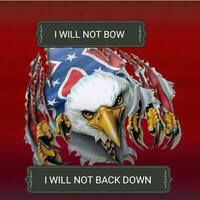A Brutal Beginning
March 05, 2024
by Pastor Chuck Swindoll
Scriptures: Acts 5:29–32; 8:1–3
Saul was one of the witnesses, and he agreed completely with the killing of Stephen.
A great wave of persecution began that day, sweeping over the church in Jerusalem; and all the believers except the apostles were scattered through the regions of Judea and Samaria. (Some devout men came and buried Stephen with great mourning.) But Saul was going everywhere to destroy the church. He went from house to house, dragging out both men and women to throw them into prison. (Acts 8:1–3)
We must not forget that as we study the life of the man they called Paul. We must also brace ourselves for some rather gruesome surprises. The first pen portrait of Paul (whom we first meet as Saul of Tarsus) is both brutal and bloody. If an artist were to render it with brush and oils, not one of us would want it hung framed in our living room. The man looks more like a terrorist than a devout follower of Judaism. To our horror, the blood of the first martyr splattered across Saul's clothes while he stood nodding in agreement, an accomplice to a vicious crime.
Throughout our lives we've naturally adopted a Christianized mental image of the apostle Paul. After all, he's the one who gave us both letters to the Corinthians. He wrote Romans, the Magna Carta of the Christian life. He penned that liberating letter to the Galatians exhorting them and us to live in the freedom God's grace provides. And he wrote the Prison Epistles and the Pastoral Letters so full of wisdom, so rich with relevance. Based on all that, you'd think the man loved the Savior from birth. Not even close.
He hated the name of Jesus. So much so, he became a self-avowed, violent aggressor, persecuting and killing Christians in allegiance to the God of heaven. Shocking though it may seem, we must never forget the pit from which he came. The better we understand the darkness of his past, the more we will understand his deep gratitude for grace.
The first portrait of Paul's life painted in Holy Scripture is not of a little baby being lovingly cradled in his mother's arms. Nor does it depict a Jewish lad leaping and bounding with neighborhood buddies through the narrow streets of Tarsus. The original portrait is not even of a brilliant, young law student sitting faithfully at the feet of Gamaliel. Those images would only mislead us into thinking he enjoyed a storybook past. Instead, we first meet him as simply a "young man named Saul," party to Stephen's brutal murder, standing "in hearty agreement with putting him to death" (Acts 7:58; 8:1).
That's the realistic Saul we need to see in order to truly appreciate the glorious truths of the New Testament letters he wrote. No wonder he later came to be known as the "apostle of grace."
People
Circles
Posts
Brotherly Love
FEBRUARY 22, 2024
Be kindly affectionate to one another with brotherly love, in honor giving preference to one another.
Romans 12:10
Recommended Reading: Philippians 2:1-5
In 1681, England’s King Charles II granted William Penn, an English Quaker, a charter to establish what eventually became the Commonwealth of Pennsylvania in America. Having suffered religious persecution in England, Penn wanted his newfound colony to be a place of religious freedom for all. Thus, he named what became the capital city Philadelphia—a Greek word for “brotherly love” (Greek philos means “beloved,” adelphos means “brother”).
“Brotherly love” is an important subject in the New Testament epistles (Romans 12:10; 1 Thessalonians 4:9; Hebrews 13:1; 2 Peter 1:7). A hallmark of brotherly (and sisterly) love is the choice to put the interests of others ahead of one’s own—to “honor” others by giving preference to them. Paul writes that we should imitate Christ in this regard, doing nothing out of selfish ambition but considering others’ needs ahead of our own (Philippians 2:1-5). We should settle grievances quickly, not letting them carry over to tomorrow (Ephesians 4:26-27).
Look for ways today to express brotherly love to someone by putting their needs and interests ahead of your own.
Brotherly love is the badge of Christ’s disciples.
Matthew Henry
Is There More Sin in the Church Today than in New Testament Times?
I just read through the Epistles again (i.e., the letters to the early Church). I noticed, among other things, the references to sinful behavior which needed to be addressed. This brought me to the question, “Did the New Testament Church have to cope with the same evil within its ranks as the Church today, or are things much worse today?” People point to evil worsening and say things are getting darker. How dark was the Church in the New Testament? Pretty dark, as they had all the same problems we see today. Here are some of my gleanings.
more: https://www.cwgministries.org/blogs/there-more-sin-church-today-new-testament-times
Videos
People
Circles
Videos
Posts
A Brutal Beginning
March 05, 2024
by Pastor Chuck Swindoll
Scriptures: Acts 5:29–32; 8:1–3
Saul was one of the witnesses, and he agreed completely with the killing of Stephen.
A great wave of persecution began that day, sweeping over the church in Jerusalem; and all the believers except the apostles were scattered through the regions of Judea and Samaria. (Some devout men came and buried Stephen with great mourning.) But Saul was going everywhere to destroy the church. He went from house to house, dragging out both men and women to throw them into prison. (Acts 8:1–3)
We must not forget that as we study the life of the man they called Paul. We must also brace ourselves for some rather gruesome surprises. The first pen portrait of Paul (whom we first meet as Saul of Tarsus) is both brutal and bloody. If an artist were to render it with brush and oils, not one of us would want it hung framed in our living room. The man looks more like a terrorist than a devout follower of Judaism. To our horror, the blood of the first martyr splattered across Saul's clothes while he stood nodding in agreement, an accomplice to a vicious crime.
Throughout our lives we've naturally adopted a Christianized mental image of the apostle Paul. After all, he's the one who gave us both letters to the Corinthians. He wrote Romans, the Magna Carta of the Christian life. He penned that liberating letter to the Galatians exhorting them and us to live in the freedom God's grace provides. And he wrote the Prison Epistles and the Pastoral Letters so full of wisdom, so rich with relevance. Based on all that, you'd think the man loved the Savior from birth. Not even close.
He hated the name of Jesus. So much so, he became a self-avowed, violent aggressor, persecuting and killing Christians in allegiance to the God of heaven. Shocking though it may seem, we must never forget the pit from which he came. The better we understand the darkness of his past, the more we will understand his deep gratitude for grace.
The first portrait of Paul's life painted in Holy Scripture is not of a little baby being lovingly cradled in his mother's arms. Nor does it depict a Jewish lad leaping and bounding with neighborhood buddies through the narrow streets of Tarsus. The original portrait is not even of a brilliant, young law student sitting faithfully at the feet of Gamaliel. Those images would only mislead us into thinking he enjoyed a storybook past. Instead, we first meet him as simply a "young man named Saul," party to Stephen's brutal murder, standing "in hearty agreement with putting him to death" (Acts 7:58; 8:1).
That's the realistic Saul we need to see in order to truly appreciate the glorious truths of the New Testament letters he wrote. No wonder he later came to be known as the "apostle of grace."
Brotherly Love
FEBRUARY 22, 2024
Be kindly affectionate to one another with brotherly love, in honor giving preference to one another.
Romans 12:10
Recommended Reading: Philippians 2:1-5
In 1681, England’s King Charles II granted William Penn, an English Quaker, a charter to establish what eventually became the Commonwealth of Pennsylvania in America. Having suffered religious persecution in England, Penn wanted his newfound colony to be a place of religious freedom for all. Thus, he named what became the capital city Philadelphia—a Greek word for “brotherly love” (Greek philos means “beloved,” adelphos means “brother”).
“Brotherly love” is an important subject in the New Testament epistles (Romans 12:10; 1 Thessalonians 4:9; Hebrews 13:1; 2 Peter 1:7). A hallmark of brotherly (and sisterly) love is the choice to put the interests of others ahead of one’s own—to “honor” others by giving preference to them. Paul writes that we should imitate Christ in this regard, doing nothing out of selfish ambition but considering others’ needs ahead of our own (Philippians 2:1-5). We should settle grievances quickly, not letting them carry over to tomorrow (Ephesians 4:26-27).
Look for ways today to express brotherly love to someone by putting their needs and interests ahead of your own.
Brotherly love is the badge of Christ’s disciples.
Matthew Henry
Is There More Sin in the Church Today than in New Testament Times?
I just read through the Epistles again (i.e., the letters to the early Church). I noticed, among other things, the references to sinful behavior which needed to be addressed. This brought me to the question, “Did the New Testament Church have to cope with the same evil within its ranks as the Church today, or are things much worse today?” People point to evil worsening and say things are getting darker. How dark was the Church in the New Testament? Pretty dark, as they had all the same problems we see today. Here are some of my gleanings.
more: https://www.cwgministries.org/blogs/there-more-sin-church-today-new-testament-times
Willingly or Unwillingly
SEPTEMBER 21, 2022
For it is written: “As I live, says the Lord, every knee shall bow to Me, and every tongue shall confess to God.”
Romans 14:11
Recommended Reading: Philippians 2:9-11
Young people grow up learning to trust the word of certain adults, depending on how consistent those adults have been in following through on their words in the past. In Isaiah 55:10-11, the prophet quotes God’s promise that His Word will never fail to accomplish its intent. That is, God and His words are entirely trustworthy.
With that as background, every human being will someday bow before God and acknowledge Him. Because God said it, it will surely happen. He said it in Isaiah 45:23, referring to all “who are incensed against Him” (verse 24). Then the apostle Paul repeated this promise twice in his epistles—with two different applications. In Romans 14:11, the promise is directed toward Christians: Don’t judge others because everyone will one day be judged by God. But in Philippians 2:9-11, the promise encompasses all humanity: God exalted Christ over all, and one day all will acknowledge His Lordship; all will bow the knee before Him, willingly or unwillingly.
Who would doubt God’s words? Far better to bow before Christ today willingly than to bow unwillingly in the future.
When we see even a small glimpse of God’s holiness, we will bow in worship.
R. C. Sproul
✨#Christian #Life Series of #Johns & #Jude’s #Epistles #Classic @WarnRadio
https://warn-usa.com/christian-life-series-johns-judes-epistles'>https://warn-usa.com/christian-life-series-johns-judes-epistles/
#Christianlife series follows the Epistles of John and Jude’s letter to the #believers. This addresses important issues at a time when an #earlychurch needed #truth. This saw Christian life manifest in a growing church in the #Roman #Kingdom. Surrounded by #falseprophets, #unbelievers, #radicalized #enemies who will stop at nothing to destroy them. These epistles form the beginning to Johns next work of #Revelation. Classic Warn Radio are premier shows that we have upgraded the post. We look at the script, post, images, update links, and the audio link.
✨#Christian #Life Series of #Johns & #Jude’s #Epistles #Classic @WarnRadio
https://warn-usa.com/christian-life-series-johns-judes-epistles'>https://warn-usa.com/christian-life-series-johns-judes-epistles/
Listen to this Show now! Share this post!

Christian life series follows the Epistles of John and Jude's letter to the believers. This addresses important issues at a time when an early church needed truth. This saw Christian life manifest in a growing church in the Roman Kingdom. Surrounded by false prophets, unbelievers, radicalized enemies who will stop at nothing to destroy them. These epistles form the beginning to Johns next work of Revelation. Classic Warn Radio are premier shows that we have upgraded the post. We look at the script, post, images, update links, and the audio link.
warn-usa.com



